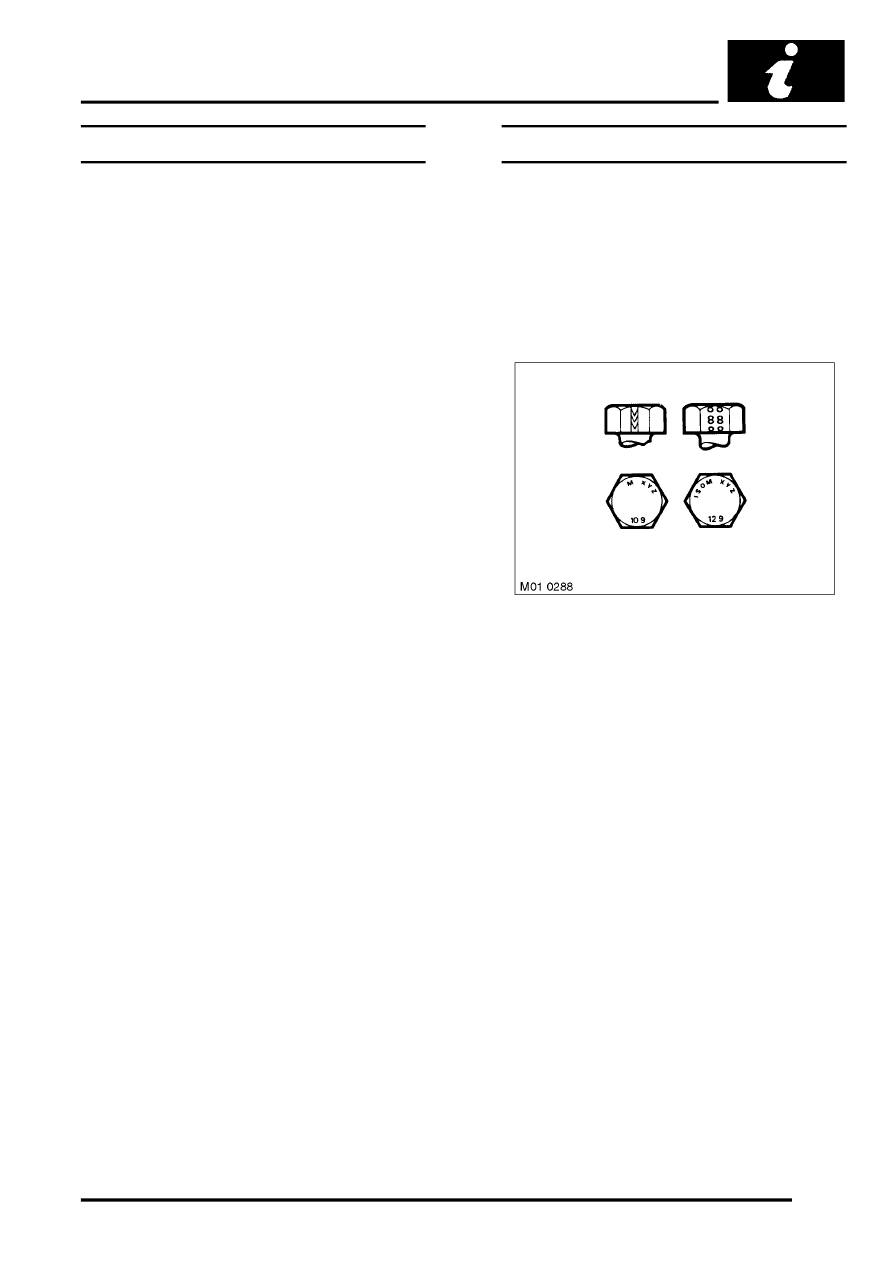L322 Range Rover Service Procedures

GENERAL INFORMATION
03-11
Screw Threads
General
Metric threads to ISO standards are used.
Damaged nuts, bolts and screws must always be
discarded. Cleaning damaged threads with a die or
tap impairs the strength and fit of the threads and is
not recommended.
Always ensure that replacement bolts are at least
equal in strength to those replaced. Castellated nuts
must not be loosened to accept a split-pin, except in
recommended cases when this forms part of an
adjustment.
Do not allow oil or grease to enter blind threaded
holes. The hydraulic action on screwing in the bolt or
stud could split the housing.
Always tighten a nut or bolt to the recommended
torque figure. Damaged or corroded threads can
affect the torque reading.
To check or re-tighten a bolt or screw to a specified
torque figure, first loosen a quarter of a turn, then re-
tighten to the correct torque figure.
Oil thread lightly before tightening to ensure a free
running thread, except in the case of threads treated
with sealant/lubricant, and self-locking nuts.
Bolt and Nut Identification
Bolt identification
A large number of the nuts and bolts used on New
Range Rover must be discarded after removing or
loosening them. Refer to the repair sections in this
Manual for further information.
CAUTION: All rear suspension fixings must be
replaced whenever they are removed.
An ISO metric bolt or screw made of steel and larger
than 6 mm in diameter can be identified by either of
the symbols ISO M or M embossed or indented on
top of the bolt head.
In addition to marks identifying the manufacturer, the
top of the bolt head is also marked with symbols
indicating the strength grade, e.g. 8.8; 10.9; 12.9;
14.9. As an alternative, some bolts and screws have
the M and strength grade symbol stamped on the
flats of the hexagon.
